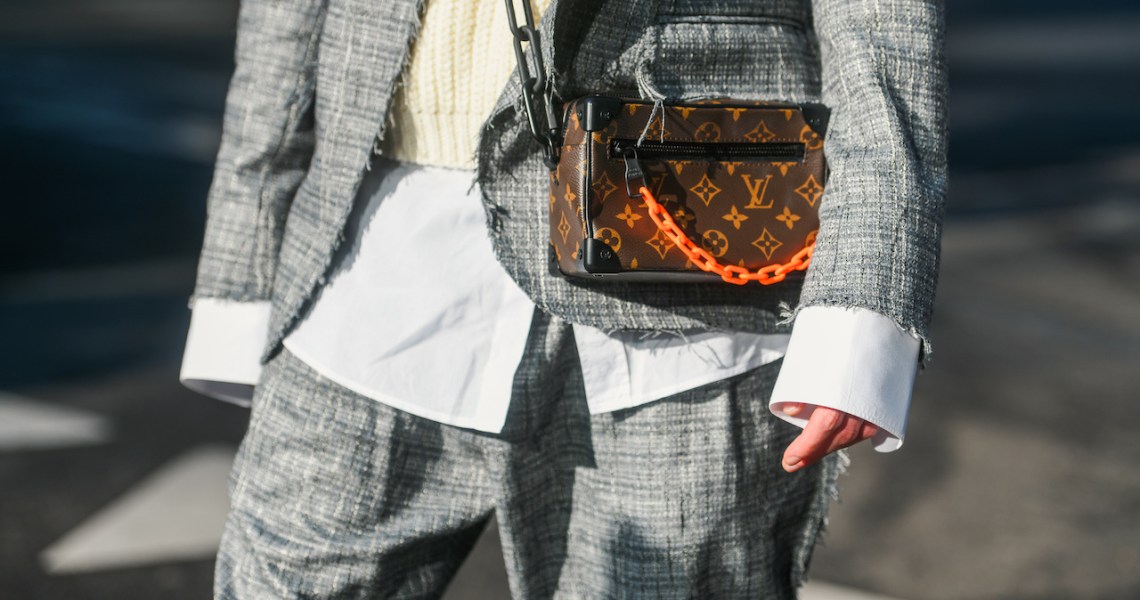It took over a year after the untimely death of Virgil Abloh for Louis Vuitton to announce who would be taking over his role as men’s creative director. But the reactions to the announcement on Tuesday that famed musician Pharrell Williams was the pick were instantaneous.
Across the industry, reactions fell predominately into two camps: those who lamented that LVMH’s decision seemed to outweigh celebrity over design acumen, and those who said Williams’ curatorial and collaborative approach is perfectly in-line with what Abloh was doing before his death.
Joey Keefer, a menswear designer and consultant, acknowledged Pharrell’s creativity and talent. But he told Glossy he worries about the precedent of hiring celebrities to major fashion roles.
“Appointing people who are immensely talented, like a Pharrell, into appointments where they’re not necessarily an expert, per se, is challenging to stomach,” Keefer said. “How many other industries operate like this? It’s like appointing Hedi Silmane as the head of A&R at Universal Music Group.”
Keefer’s feelings were echoed by others in the industry, including the Financial Times’ Jo Ellison. In an op-ed, Ellison wrote that aspiring designers may be better off hiring a social media manager rather than getting a degree from a design school like Parsons or Central Saint Martins.
Shelton Boyd-Griffith, a fashion editor at Essence, echoed the sentiment.
“I’d much rather take a young design grad or in-house designer,” Boyd-Griffith said on Twitter. “All these young talented designers itching for their big chance and you hire a multi millionaire celebrity?”
But there are just as many people who defend Louis Vuitton’s choice. Williams does have years of fashion experience, having founded two successful streetwear brands — Billionaire Boys Club and Ice Cream — and designed or collaborated with several major brands, including Adidas, Uniqlo and, appropriately, Louis Vuitton.
Williams is also especially suited to follow Abloh’s specific vision for Louis Vuitton. Pharrell is known mostly as a collaborator and curator of fashion, rather than a designer himself, but those terms describe Abloh’s tenure, as well. When he died, Abloh’s fans noted his eclectic taste and ability to cast a wide net, bringing in diverse collaborators and helping to expose Louis Vuitton to new audiences. Commentators noted that Williams fits with this vision of the brand.
“Pharrell brings with him the kind of clout and buzz only a celebrity can. Nobody can fill Virgil’s shoes but Pharrell Williams comes pretty close when it comes to retaining the same energy Vuitton men’s had under Virgil,” said fashion writer Louis Pisano. “He’s a multidisciplinary creative straddling the worlds of music, fashion, art, and design with an approach and aesthetic similar to Virgil’s. In my opinion it’ll be a seamless transition in which the new menswear clientele that Virgil attracted won’t be found wanting.”
Louis Vuitton is one of the biggest fashion brands in the world — its revenue surpassed $20 billion last year for the first time — and the majority of its revenue comes from leather goods, not its ready-to-wear collections.
And it’s clear that parent company LVMH wanted someone who can act as an ambassador for the brand and tastemaker in the industry, in addition to overseeing new collections.
“I empathize with industry people who think that this will set the wrong precedent going forward that celebrities are fit to be creative directors of traditional fashion houses,” said Clayton Chambers, creator of the fashion newsletter Sprezza. “But Louis Vuitton sees this as a curatorial, dot-connecting role, not a strictly technical, in-the-weeds design role. If what they want is to be at the center of music, art, fashion and entertainment, Pharrell can help bridge that gap.”




